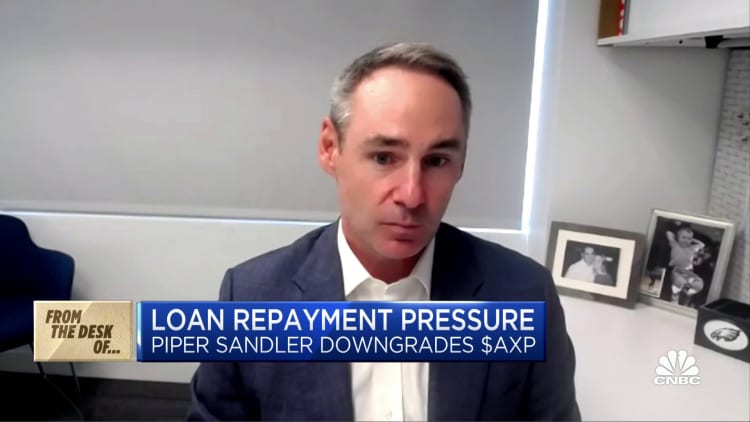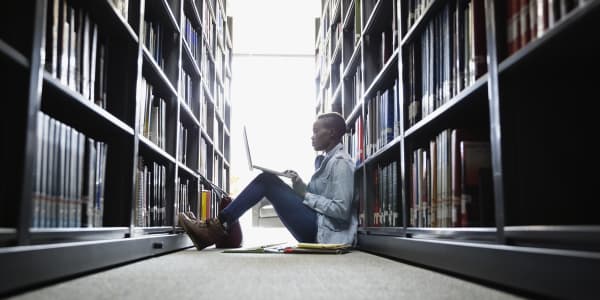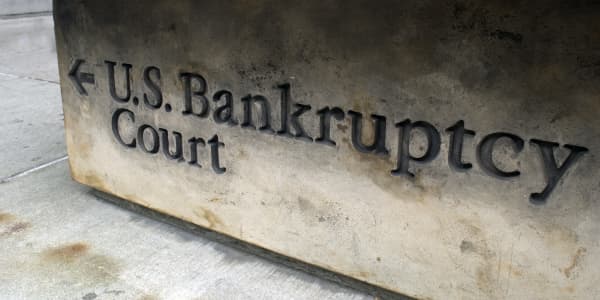With most college bills for the fall semester due this month, parents and students are likely strategizing how to cover the cost. For some, that may include deciding whether to take out private student loans.
As higher education has gotten more expensive, the private student loan market has boomed.
The $130 billion industry has grown more than 70% over the last decade or so, according to the Student Borrower Protection Center. As a whole, Americans owe more in private student loans than they do for past-due medical debt or payday loans.
"Private lenders advertise all over, including on TV, radio and websites," said higher education expert Mark Kantrowitz, in a previous interview with CNBC.
More from Personal Finance:
5 U.S. metro areas with the highest single-family rents
Many feel trapped in their homes by their mortgages
How to apply for Biden's new SAVE student loan plan
But consumer advocates say to proceed with caution when it comes to private education financing.
Here's what you should know about taking out private student loans.
Max out federal aid first
People should consider taking out a private loan only when they have reached the federal student loan limits and still need additional education financing, Kantrowitz said. (The most an undergraduate can borrow in government loans in an academic year is typically $12,500.)
But, Kantrowitz said, "borrowing private loans may be a sign of overborrowing, so they should do so with caution."
One rule of thumb is that students shouldn't borrow more in college than they expect to earn as their starting salary. You can look up annual average incomes for different occupations at the U.S. Department of Labor's website.
Scott Buchanan, executive director of the Student Loan Servicing Alliance, a trade group for federal and private lenders, said private student loans can fill the gap for those who've exhausted federal aid and scholarships.
"But you need to do your research like with any other loan, and make sure to never borrow more than you absolutely need," Buchanan said.
Scrutinize repayment terms and protections
Federal student loans offer a variety of protections, including forgiveness programs and interest-pausing forbearances, that most private lenders do not provide, said Betsy Mayotte, president of The Institute of Student Loan Advisors, a nonprofit.
"We almost always advise against private loans," Mayotte said in an earlier interview.
She also described severe terms private lenders may enforce.
"If you cannot make the payments, the lender can sue to get access to wage garnishment, asset seizure such as bank accounts, and that's for both the borrower and the cosigner," Mayotte said.

As Mayotte pointed out, many private lenders require students to get a cosigner who is equally liable for the debt. If payment challenges arise, both people are on the hook.
"I hear from borrowers and cosigners weekly who cannot afford the payments, and there's just not any options I can give them," she said.
Pay attention to interest rates
Private student loans can come with fixed or variable interest rates. Your rate can depend on you or your cosigner's credit score, income and financial history.
"Generally, borrowers should prefer a fixed rate in a rising-rate environment, even though the variable rates may start off lower," Kantrowitz said. "Variable interest rates have nowhere to go but up."
Either way, the rates on private loans can be pricey.
"I've heard of interest rates as high as 18% on private student loans," Kantrowitz said.
Official estimates on the average interest rates on private student loans range from 4% to 15%, according to the Education Data Initiative. For comparison, federal student loans for undergraduates currently come with a 5.5% interest rate.





